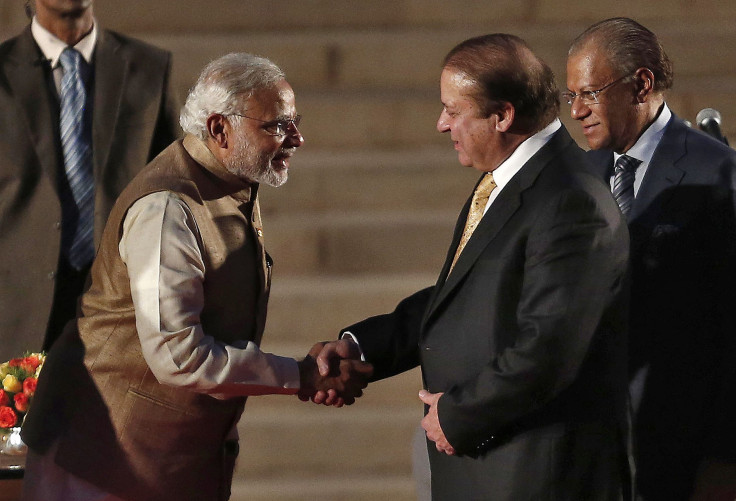India's Top Diplomat Visits Pakistan Amid Speculation Bilateral Dialogue May Resume

In the first top-level diplomatic exchange between the two neighbors and archrivals in the last seven months, Indian Foreign Secretary S. Jaishankar reached Pakistan’s capital Islamabad on Tuesday.
Jaishankar’s two-day visit -- part of a broader trip to all member countries of the South Asian Association of Regional Cooperation (SAARC) -- is significant as it could mean that the two nuclear-armed neighbors, who have fought four wars since August 1947, when the British freed and divided the Indian subcontinent, could resume bilateral talks for the first time since India broke off a dialogue in response to Pakistani diplomats meeting with separatist leaders from Kashmir in New Delhi.
Ever since Indian Prime Minister Narendra Modi assumed office in May last year, after his Hindu nationalist Bharatiya Janata Party (BJP) secured a landslide electoral victory, he has been courting India’s neighbors. He had invited the heads of SAARC countries to his swearing-in and followed this up with visits to Bhutan, Nepal and Myanmar. Modi is slated to visit Islamabad in November 2016 for the SAARC regional summit.
However, Muslim-majority Jammu and Kashmir, India’s northernmost state, which joined Hindu majority India in October 1947, has been at the center of the dispute between the two neighbors throughout their independent history. While India considers the entire state an inalienable part of its union, and Pakistan wants a United Nations-proctored plebiscite to decide the region’s fate, there is significant support among Kashmiris for independence. India controls about two-thirds of the state while some western and northwestern regions are under Pakistani occupation. China controls the uninhabited Aksai Chin region in the state’s frigid northeast.
During the meeting, both foreign secretaries realized that peaceful dialogue is the only way forward to resolve all outstanding issues, Dawn, a Pakistani newspaper reported, citing unnamed Pakistani officials. However, an immediate resumption of dialogue between the two countries is not yet a certainty.
Jaishankar’s trip to Islamabad follows only days after a new government, in which the BJP is a junior coalition partner, was installed in Jammu and Kashmir. This is the first time that the Hindu nationalist BJP is sharing power in the Muslim-majority state, and in the elections conducted in December, Modi’s BJP had its best ever electoral result in the state.
The BJP’s coalition partner is the People’s Democratic Party, which is led by the father-daughter duo of Mufti Mohammad Sayeed and Mehbooba Mufti. Sayeed, who has in the past been said to be close to Kashmiri separatists, caused a controversy soon after being sworn in as the state’s new chief minister on Sunday after he expressed gratitude to local separatist outfits and armed militant groups for allowing peaceful elections in the state.
"I want to say on record and I have told this to the Prime Minister, that we must credit the Hurriyat, Pakistan and militant outfits for the conduct of assembly elections in the state," Sayeed reportedly said. "People from across the border made the atmosphere conducive. They also have assets -- Hurriyat, militants... if they had done something (during the election) such a participation of people would not have been possible. This gives us hope."
The BJP-led federal government in New Delhi distanced itself from Sayeed’s comments, and instead, credited “the Election Commission, our armed forces and the people," for peaceful elections in the state.
Jawed Naqvi, an Indian commentator, noted in Dawn: “India has officially maintained that Mr Jaishankar is travelling as part of Delhi’s plans to stay in touch with Saarc neighbors. Mr Sayeed had, however, made resumption of talks with Pakistan a non-negotiable condition for aligning with the BJP in Kashmir. Mr Jaishankar’s visit comes after that, not before.”
© Copyright IBTimes 2024. All rights reserved.





















